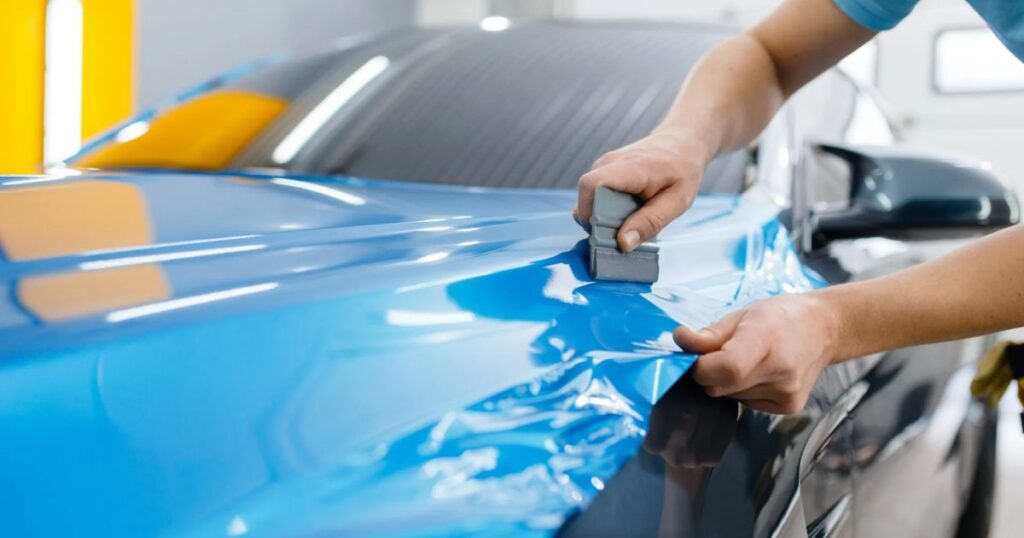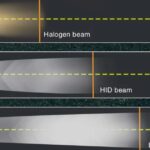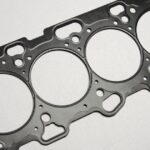Customizing your vehicle’s appearance is a growing trend, and one of the most popular methods is car wrapping. Unlike a traditional paint job, wrapping involves covering your car with large vinyl decals or films. This process allows you to radically transform the look of your ride without permanently altering the original paint.
Car wrapping has seen a surge in popularity in recent years, and for good reason. It offers a cost-effective way to change your car’s appearance, protect the underlying paint job, and even advertise your business – all with a single application. But like any vehicle customization, car wrap cost can vary significantly depending on several factors.
So, how much does it cost to wrap a car in 2024? Let’s delve into the details.
What Is a Car Wrap?
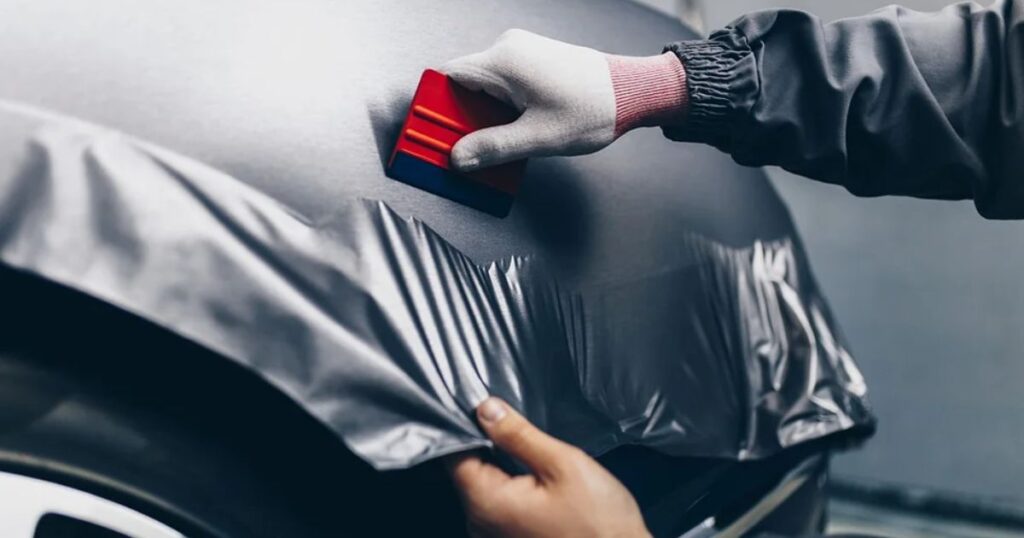
A car wrap is a large vinyl graphic or decal that is applied directly to the body of a vehicle. These wraps are made from high-quality, durable vinyl that is designed to withstand the elements and everyday wear and tear.
The process of car wrapping involves carefully measuring and custom-cutting the vinyl to fit the contours of your specific vehicle. The vinyl is then applied using specialized tools and techniques, ensuring a seamless and bubble-free finish.
Car wraps can serve multiple purposes:
- Change the color: Transform your car’s appearance by wrapping it in a solid color or unique design.
- Advertise: Many businesses use vehicle wraps as a form of mobile advertising, displaying their branding and contact information on company cars or fleets.
- Protect the paint: Clear vinyl wraps can be applied to protect the original paint job from scratches, chips, and UV damage.
Factors Affecting the Cost of Car Wrapping
The cost to wrap a car can vary significantly depending on several factors. Here are some key considerations that will influence the total price:
Vehicle Size and Model
Larger vehicles, such as SUVs, vans, and trucks, will generally cost more to wrap than smaller sedans or coupes. The complexity of the vehicle’s design and the number of body panels also play a role.
Condition of the Existing Paint
If your car has significant dents, scratches, or paint imperfections, additional bodywork may be required before the wrap can be applied. This preparation work can add to the overall cost.
Complexity of Disassembly
Some vehicles require more extensive disassembly of trim pieces, mirrors, and other components to achieve a seamless wrap. This additional labor can increase the cost.
Quality and Type of Vinyl Wrap
There are various grades and types of vinyl wraps available, ranging from basic solid colors to premium options with unique textures, patterns, or finishes. Higher-quality wraps will generally cost more.
Partial vs. Full Wrap
A full wrap that covers the entire vehicle will be more expensive than a partial wrap, which only covers specific panels or sections.
To give you an idea of typical car wrap prices, here are some rough estimates based on vehicle type:
- Sedans and Coupes: $2,000 – $3,000
- SUVs and Vans: $3,500 – $5,000
- Trucks: $2,000 – $5,000 (depending on size)
- Luxury or Exotic Cars: $5,000 – $10,000+
- Partial Wraps: $500 – $1,000
Keep in mind that these are just general ranges, and the actual cost to wrap a car will depend on the specific factors mentioned above.
Car Wrap Cost Considerations
Beyond the wrap material and installation labor, there are a few additional cost considerations to keep in mind:
- Bodywork: If your car has dents, scratches, or other imperfections, these may need to be addressed before the wrap can be applied. This bodywork can add to the overall cost.
- Disassembly: As mentioned earlier, some vehicles require more extensive disassembly of trim pieces, mirrors, and other components to achieve a seamless wrap. This additional labor can increase the cost.
- Full vs. Partial Wrap: A full wrap that covers the entire vehicle will be more expensive than a partial wrap, which only covers specific panels or sections.
It’s essential to discuss these potential additional costs with your chosen wrap installer to avoid any surprises down the line.
How Much Is It To Wrap a Car?
To give you a more detailed breakdown of car wrap cost, here are some typical price ranges for common vehicle types:
Sedans and Coupes
For a standard sedan or coupe in good condition, you can expect to pay anywhere from $2,000 to $3,000 for a full vehicle wrap. This price range covers the cost of the vinyl material, labor, and any minor preparatory work required.
SUVs and Vans
Larger vehicles like SUVs and vans typically cost more to wrap due to their increased surface area and complexity. A full wrap for these vehicles can range from $3,500 to $5,000, depending on the specific make and model.
Trucks
Truck car wrap cost can vary significantly based on the size of the vehicle. For a standard pickup truck, you can expect to pay anywhere from $2,000 to $4,000 for a full wrap. However, larger commercial trucks or semi-trucks may cost $4,000 to $5,000 or more.
Luxury or Exotic Cars
High-end luxury or exotic cars often require more intricate wrapping techniques and higher-quality vinyl materials. As a result, the cost to wrap a car in this category can range from $5,000 to $10,000 or even higher, depending on the specific vehicle.
Partial Wraps
If you’re looking to wrap only specific sections of your car, such as the hood, roof, or doors, you can opt for a partial wrap. Partial wraps are generally more affordable, with prices ranging from $500 to $1,000, depending on the coverage area.
It’s important to note that these prices are just estimates, and the actual cost to wrap a car may vary based on the specific factors discussed earlier, such as the condition of the existing paint, the complexity of the vehicle’s design, and the quality of the vinyl wrap material used.
Benefits of Car Wrapping
While the car wrap cost may seem significant, it’s important to consider the numerous benefits that car wrapping offers:
Durability
High-quality vinyl wraps are designed to withstand the elements and everyday wear and tear. When properly maintained, a car wrap can last anywhere from 3 to 7 years, protecting your vehicle’s original paint job during that time.
Visual Appeal
Car wraps offer virtually limitless possibilities when it comes to customizing your vehicle’s appearance. From bold solid colors to intricate designs and patterns, you can transform the look of your car to match your personal style or branding.
Cost Savings
Compared to a full respray or paint job, car wrapping is often a more cost-effective option, especially for higher-end vehicles. Additionally, when it’s time to remove the wrap, your original paint job remains intact, potentially saving you the cost of another full paint job.
Protection
Clear vinyl wraps can be applied to protect your car’s paint job from scratches, chips, UV damage, and other environmental factors. This can help maintain your vehicle’s value and appearance over time.
Versatility
With car wraps, you have the flexibility to change your vehicle’s look as often as you’d like. When you’re ready for a new design, simply remove the old wrap and apply a new one, without the hassle and expense of repainting.
How Long Does a Car Wrap Last?
The lifespan of a car wrap depends on several factors, including the quality of the vinyl material, the installation process, and the care and maintenance you provide. On average, a high-quality car wrap installed by a professional can last anywhere from 3 to 7 years.
To maximize the longevity of your car wrap, it’s essential to follow these tips:
- Avoid excessive sun exposure: Prolonged exposure to direct sunlight can cause the vinyl to fade or become brittle over time. Park your wrapped car in a garage or covered area whenever possible.
- Regular cleaning: Wash your wrapped car regularly with mild soap and water to remove dirt, salt, and other contaminants that can degrade the vinyl.
- Avoid abrasive materials: Steer clear of harsh chemicals, abrasive sponges, or brushes when cleaning your wrapped car, as these can scratch or damage the vinyl.
- Professional removal: When it’s time to remove the wrap, it’s best to have it done by a professional installer. Improper removal techniques can potentially damage the underlying paint job.
By following these guidelines and seeking professional installation and removal, you can ensure that your car wrap looks its
Can I DIY Car Wrap?
While professional car wrapping is highly recommended for the best results, some car enthusiasts may consider attempting a do-it-yourself (DIY) wrap as a cost-saving measure. However, it’s important to understand the challenges and limitations involved in DIY car wrapping.
Pros of DIY Car Wrapping:
- Cost Savings: By purchasing the vinyl wrap materials and doing the installation yourself, you can potentially save a significant amount of money compared to hiring a professional installer.
- Personal Satisfaction: Some car enthusiasts find satisfaction in completing the entire wrapping process themselves, from design to installation.
Cons of DIY Car Wrapping:
- Skill and Experience Required: Applying a car wrap correctly requires a high level of skill, patience, and experience. Even minor mistakes can result in bubbles, wrinkles, or improper alignment, compromising the overall look.
- Specialized Tools Needed: Professional car wrapping requires specialized tools, such as heat guns, squeegees, knives, and other equipment, which can be costly for a DIY enthusiast to acquire.
- Time-Consuming Process: Wrapping an entire vehicle is a time-consuming and labor-intensive process, especially for those without prior experience. It can take several days or even weeks to complete, depending on the size of the vehicle and the complexity of the design.
- Limited Warranty: DIY car wraps typically do not come with any warranty or protection, unlike professional installations that often include warranties against peeling, cracking, or premature fading.
If you decide to attempt a DIY car wrap, it’s generally recommended to start with a smaller project, such as a partial wrap or a simple design on a single panel. This will allow you to develop the necessary skills and experience before tackling a full vehicle wrap.
Additionally, it’s crucial to thoroughly research the materials, techniques, and tools required, and to follow all instructions carefully to ensure a satisfactory result.
Alternatives to Car Wrapping
While car wrapping is a popular choice for vehicle customization, it’s not the only option available. Here are some alternatives to consider:
Paint Job
A traditional paint job can offer a long-lasting and high-quality finish, but it’s generally more expensive than car wrapping, especially for higher-end vehicles. Additionally, repainting a vehicle can be a more permanent and time-consuming process.
Plasti-Dip
Plasti-Dip is a rubberized coating that can be sprayed onto a vehicle’s exterior, providing a temporary color change. It’s generally more affordable than car wrapping but may not offer the same level of durability or visual appeal.
Clear Bra (Paint Protection Film)
A clear bra, or paint protection film, is a transparent urethane film applied to high-impact areas of a vehicle, such as the hood, fenders, and bumpers. It helps protect the paint from scratches, chips, and other environmental damage but does not change the vehicle’s color or appearance.
Vinyl Decals or Stickers
For those looking to add accents or design elements to their vehicle without a full wrap, vinyl decals or stickers can be a more affordable option. However, they are generally limited in size and coverage compared to a full wrap.
When considering alternatives to car wrapping, it’s essential to weigh factors such as cost, durability, visual appeal, and the level of customization desired.
How to Choose a Professional Car Wrapper
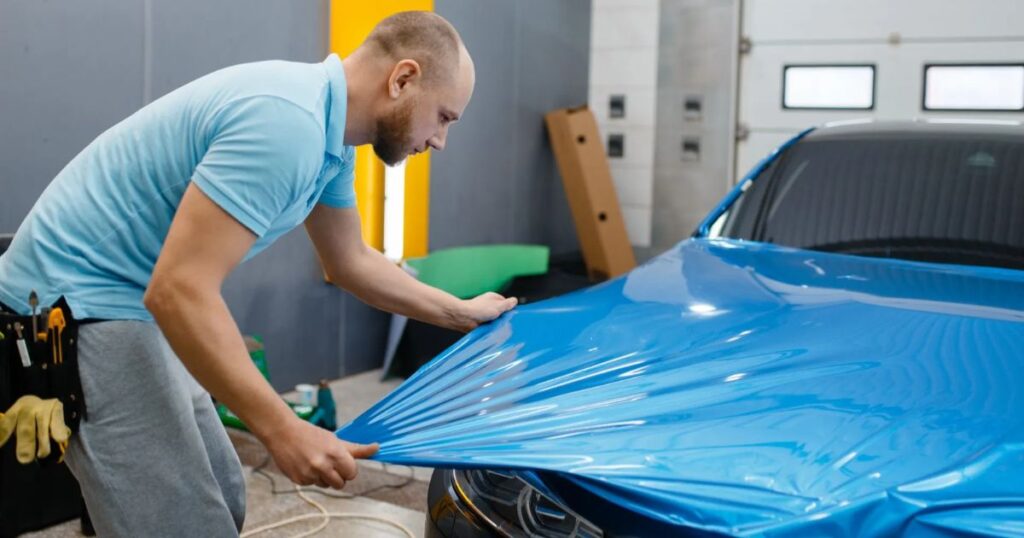
If you’ve decided to go with a professional car wrap installation, it’s crucial to choose a reputable and experienced installer. Here are some tips for selecting the right car wrapper:
- Research and Check Reviews: Look for car wrap installers in your area and read reviews from previous customers. Check their portfolios and online presence to get a sense of their work quality and professionalism.
- Ask for Certifications and Credentials: Reputable car wrap installers may have certifications or training from vinyl manufacturers or industry organizations, which can indicate their level of expertise.
- Get Multiple Quotes: Request quotes from several car wrap installers to compare prices and services offered. Be wary of quotes that seem significantly lower than others, as this may indicate lower-quality materials or workmanship.
- Discuss Warranties and Guarantees: Inquire about the warranties or guarantees offered by the installer for their work. A reputable installer should stand behind their work and offer some level of protection against premature peeling, cracking, or fading.
- Visit the Facility: If possible, visit the installer’s facility to assess their workspace, equipment, and overall professionalism.
- Communication and Responsiveness: Pay attention to the installer’s communication and responsiveness throughout the quoting and scheduling process. Good communication is essential for a smooth and successful car wrap installation.
By taking the time to research and choose a reputable professional car wrapper, you can ensure that your vehicle receives a high-quality wrap installation that meets your expectations.
Read More Posts
What Is A Hybrid Car? The Comprehensive Guide
Does Costco Install Car Batteries?
FAQs
Is it cheaper to paint or wrap a car?
Wrapping a car is typically cheaper than painting it.
How long do wraps last on cars?
Wraps can last anywhere from 3 to 7 years, depending on factors like maintenance and environmental conditions.
How much does it cost to wrap your car matte black?
The cost to wrap a car matte black can range from $1,500 to $5,000, depending on the size and complexity of the vehicle.
Can you wrap a car yourself?
Yes, you can wrap a car yourself, but it requires skill, patience, and the right tools to achieve a professional-looking result.
Conclusion
Wrapping your car can be an excellent way to refresh its appearance, protect the original paint job, or even advertise your business. However, the cost to wrap a car can vary significantly depending on factors such as vehicle size, condition, wrap quality, and the extent of the coverage.
To summarize, here are some key points to remember:
- Full vehicle wraps for sedans and coupes generally range from $2,000 to $3,000, while larger vehicles like SUVs and vans can cost $3,500 to $5,000.
- Luxury or exotic cars may cost $5,000 to $10,000 or more for a high-quality wrap.
- Partial wraps are more affordable, typically costing $500 to $1,000.
- Car wraps offer numerous benefits, including durability, visual appeal, cost savings, protection, and versatility.
- DIY car wrapping is possible but requires specialized skills, tools, and patience and may not yield the same quality as a professional installation.
- When choosing a professional car wrapper, research, compare quotes, and prioritize experience, warranties, and communication.
Ultimately, whether you choose a full, partial, or alternative wrap, it’s essential to carefully consider your budget, desired outcome, and long-term maintenance requirements. With the right preparation and execution, a car wrap can be a fantastic way to transform your vehicle’s appearance and protect its value.

